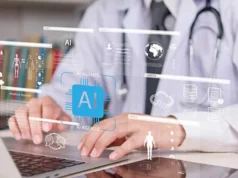Across Africa, the buzz around artificial intelligence (AI) often centres on the machines, the hardware and the “cool tech”. But a growing chorus of experts say that what really matters isn’t the chips and servers — it’s the people. As the continent races into an AI-driven future, it’s becoming clear that investing in talent and skills will be far more transformative than simply importing more silicon. For Nigerian youth, entrepreneurs, and policymakers alike, the message is clear: mastering AI isn’t just about access to tools — it’s about mastering the mindset, the language, and the capability to build, adapt, and innovate locally.
Table of Contents

Skills Shortfall: The Real Barrier
While headlines highlight big-data expeditions and cloud roll-outs, the deeper issue in many African countries remains a chronic shortage of AI-ready talent. Recent research shows that Africa accounts for only a small fraction of the global AI talent pool. In South Africa alone, businesses say they struggle to fill AI-related roles, despite seeing large demand.
This gap is not only about coding. As one article puts it, “coding is no longer enough” — Africa needs AI literacy embedded in education systems, including curricula that reflect local languages and realities. Infrastructure issues such as unreliable electricity, patchy internet access and outdated university programmes further complicate the picture.
The stakes are high. According to one estimate, Africa must create roughly 230 million digital jobs by 2030 to keep pace with global trends — yet many learners leave school without even basic digital skills. In Nigeria, Kenya and other countries, the risk is that millions of young people will be left behind in low-value roles or locked out of the transformative opportunities AI promises.
Why Skills Matter More Than Hardware
It’s tempting to assume the path to AI leadership is paved with data centres, big processors and cloud infrastructure. But a striking shift is underway: the real bottleneck isn’t silicon — it’s human capital.
First, technology evolves fast. The moment a machine is installed, it risks becoming obsolete. But a skilled person adapts, learns, and innovates. In Africa’s context, that flexibility is crucial. Organisations report that a lack of AI skills causes project delays, failed innovation initiatives, and lost opportunities.
Second, local relevance demands local insight. Many AI models today are trained in non-African contexts, using data that doesn’t reflect Africa’s languages, cultures or business ecosystems. Without Africans in the driver’s seat, the “silicon” will serve external agendas rather than home-grown innovation. Skills give us the capacity to shape AI solutions for Africa rather than simply consume them.
Finally, skills are inclusive. Not everyone will build data centres, but many more can engage with AI through service design, prompt engineering, ethics, data strategy, UX design and human-AI teamwork. The narrative shifts from “get the machine” to “get the mind”.

Where Are the Opportunities?
There are signs of momentum. Major tech firms are launching skilling initiatives across the continent. For example, Microsoft committed to training one million South Africans by 2026. In Nigeria and beyond, training programmes, bootcamps and academic-industry partnerships are proliferating.
These efforts spotlight several key opportunity zones:
- Youth employment: With Africa’s median age around 19-20 years, the “youth bulge” offers a pool of learners ready to be reskilled into future-facing roles.
- Sectoral transformation: AI is not just for tech firms — agriculture, healthcare, fintech, and education all stand to benefit, especially when local talent drives the innovation.
- Decentralised learning: Bootcamps, online platforms and blended programmes allow learners outside major cities to access training. These also help bypass some traditional university bottlenecks.
- Innovation ecosystems: When Africans build AI for Africa, the economic value flows locally — new startups, jobs, solutions for local challenges rather than imported ones.
For Nigeria in particular, this moment is ripe. With the country home to one of Africa’s largest tech-active youth populations, aligning skills training with Nigeria’s strengths in fintech, content, agritech and mobile innovation could accelerate impact.
Looking Ahead: What Must Change
If Africa is to fully seize the AI moment, the focus must shift from devices and infrastructure to durable human capability. Here are the key actions required:
- Curriculum reform
Schools and universities must embed AI literacy early — not only coding, but algorithmic thinking, ethics, data-awareness, local language applications and human-AI collaboration. - Accessible training at scale
Governments, industry and nonprofits should expand affordable, high-quality training programmes that reach underserved regions, rural learners and women. Funding models should enable participation beyond major cities. - Industry-academia linkages
Universities and vocational centres must partner with industry to offer hands-on experience, real case-studies and certifications aligned to labour-market needs. Many institutions today still prioritise theory over applied skills. - Infrastructure as enabler, not centre-stage
Yes, hardware and connectivity matter — but they should support skill development, not overshadow it. Interventions should ensure stable power, internet access and devices in tandem with training. - Ownership and relevance
Africa must own the narrative of its AI future. That means building systems that reflect African languages, contexts and values rather than being passive consumers of foreign models. - Lifelong learning mindset
In an era of rapid change, one-time training won’t suffice. Continuous learning, upskilling and adaptability will define success. As one expert notes, skills like psychology, linguistics and creativity will matter more as AI becomes more autonomous.

Conclusion
In Nigeria and across Africa, the narrative of the future should not revolve only around data centres or supercomputers. Instead, the transformation hinges on equipping young Africans with the skills, the mindset, and the opportunity to create, innovate and lead in the AI age. When we build skills first — not just silicon — Africa moves from watching the future to shaping it. And that’s a future that invites not just employment, but ownership, creativity and local relevance.
Join Our Social Media Channels:
WhatsApp: NaijaEyes
Facebook: NaijaEyes
Twitter: NaijaEyes
Instagram: NaijaEyes
TikTok: NaijaEyes





